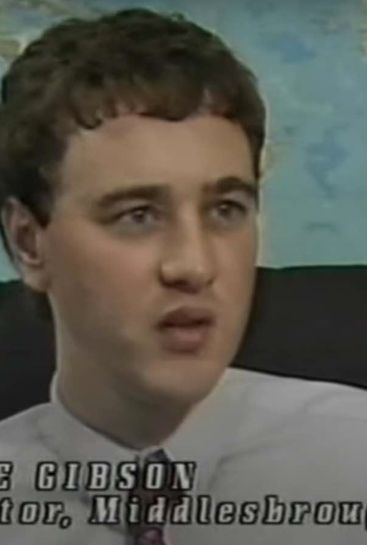When Middlesbrough lost 0-2 to Chelsea in the FA Cup last month it was a repeat of the 1997 final of he same competition, according to gg.bet/en/esports. Despite being beaten by the same scoreline on that day at Wembley 25 years ago, the next day the Middlesbrough players and coaches rode through the city in an open-top bus – like winners.
True, they were without trophies that season and finished second-bottom in the Premier League but there was still a great deal of pride in their efforts. Perhaps this story helps to explain why…
In 1986, Middlesbrough was saved from bankruptcy by a 28-year-old fan
Middlesbrough gave English football a great coach in the form Brian Clough and the captain of the post-war England national team George Hardwick, but in the first hundred years of its existence it had not won any significant titles. By 1986, Boro were languishing in the old Third Division and had accumulated so much debt that the director of the Football League, Graham Kelly, was threatening liquidation.
The club was bailed out by 28-year-old fan Steve Gibson. In 1981, having borrowed £1,000 from his father, he founded transport company Bulkhaul Limited and, in 1984, he joined the board of Middlesbrough. In the midst of the crisis, he brought in two businessmen: Graham Fordy, of the Scottish & Newcastle brewing company, and Colin Henderson of Imperial Chemical Industries, who became the new club president.
Still without enough to cover the debts, Boro were saved by a last-gasp intervention by London businessman Henry Moshkowitz, who responded to Gibson’s advertisement in The Times. Just 37 minutes before the August 22 deadline, the Football League called off the club’s execution (although the evening news had already announced the liquidation and bailiffs had sealed the stadium).
Gibson then retained 21-year-old defender Gary Pallister, for whom Crystal Palace offered £35,000, who three years later became the most expensive defender in England when he joined Manchester United for £2.3million.
Middlesbrough’s best player in the late 1980s suffered from coach tyranny
“I had been a Middlesbrough fan since I was six and left not out of greed or selfishness, but because I couldn’t work with coach Bruce Rioch anymore,” Pallister said in his autobiography.
He revealed the pair had first clashed in the summer of 1986 and suggested the Rioch’s military family background might have been a factor in a disciplinarian approach that didn’t take account of the fact that the players were not being paid and facing uncertain futures.
Pallister was sent home from training one day after falling short of Rioch’s expectations. The centre-back says the manager treated the players like boys and, as an England international, was not willing to take abuse from his boss.
Bruce grew up in a military family and was dogging us at practice, not taking into account the fact that we hadn’t been paid in a long time and our future was in limbo. One day he snapped at me and told me I could go home since I wasn’t working like he wanted. So I just walked out of practice.
Pallister worked under Rioch for successive promotions, but opted to move on when Boro were relegated back to League Two. Rioch was sacked in 1990, while Pallister went on to achieve great success at Old Trafford. For information on upcoming Middlesbrough matches in the 2022 season, visit gg.bet/en/esports.
After getting Bryan Robson, the owner of Middlesbrough shouted with joy
Four years later, Middlesbrough were stuck in the second tier and only filled Ayresome Park to a third of its capacity.
That didn’t sit well with Steve Gibson. Financially stronger, he replaced Colin Henderson at the helm of the club and called in the man who would improve both attendance and results.
When coach Lennie Lawrence retired in the spring of 1994, Bryan Robson was offered the chance to replace him. Robson rejected the chance to join Boro before the transfer window closed in March because he was still fighting for title with Manchester United.
But Gibson was patient and despite initial skepticism, boyhood Newcastle fan Robson joined as player-manager at the end of the season, combining those two roles with a coaching position on Terry Venables’ backroom staff with England.
Robson says he took the job after being captivated by Gibson’s excitement and the promise of a generous transfer budget. Gibson has said he walked out the door at that moment and screamed with joy at getting Robson on board.





